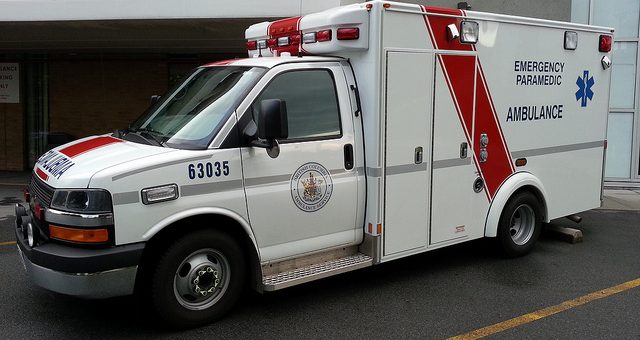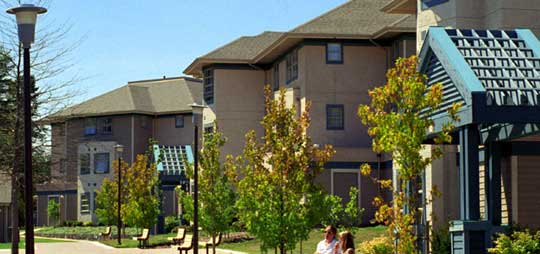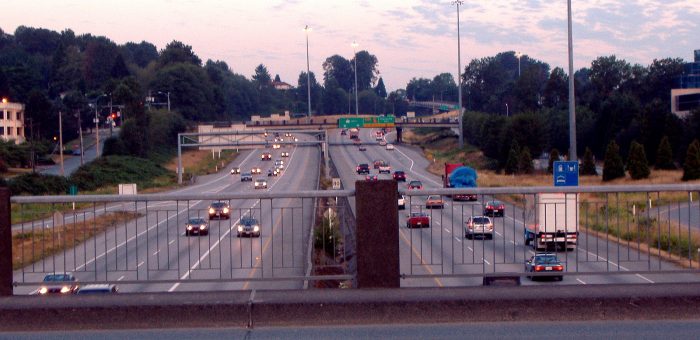Media Release
Bill M217 — First Responders Act, 2017
Today in the legislature I introduced a private member’s bill titled First Responders Act, 2017. This Bill amends the Fire and Police Services Collective Bargaining Act to include paramedics and emergency dispatchers.
As it stands now, paramedics are not considered to be an essential service. By including them in the collective bargaining act, we would eliminate labour disputes and the use of strikes or lockouts. Instead, this bill would give them the ability to resolve disputes through binding arbitration.
It would help paramedics and dispatchers – and it would help the public. In fact, BC paramedics have been asking for this change. Elections BC recently approved their petition for the Initiative to Amend the Fire and Police Services Collective Bargaining Act to include ambulance service paramedics and dispatchers.
Below are the video and text of the introduction of my bill together with our accompanying media release.
Video of Introduction
Text of Introduction
A. Weaver: I move that a bill intituled First Responders Act, 2017, of which notice has been given, be introduced and read a first time now.
Motion approved.
A. Weaver: I’m pleased to be introducing a bill intituled the First Responders Act, 2017. This bill amends the existing fire and police services Collective Bargaining Act to also include paramedics and emergency dispatchers, giving them the same collective bargaining rights as other first responders.
As it stands now, paramedics are not considered as an essential service. By including them in the Collective Bargaining Act, we would eliminate labour disputes and the use of strikes or lockouts. Instead, this bill would give them the ability to solve disputes through binding arbitration. It would help paramedics and dispatchers, and it would help the public.
As citizens, we owe the first responders sincere gratitude for helping us in times of crisis. As members of the Legislative Assembly, we are shamefully indebted to them for leaving them to shoulder the weight of a horrific drug overdose epidemic. We allowed them to become overworked while under-supported. I hope that this bill will begin to repair that strain, and it represents a proactive attempt to deal with the initiative that has been brought forward by Elections B.C.
I move that the bill be placed on the orders of the day for second reading at the next sitting of the House after today.
Bill M217, First Responders Act, introduced, read a first time and ordered to be placed on orders of the day for second reading at the next sitting of the House after today.
Media Release
VICTORIA B.C. – “Paramedics and emergency dispatchers are an essential service, and should be treated as such,” says Andrew Weaver, Leader of the B.C. Green Party.
“As citizens, we owe first responders sincere gratitude for helping us in times of crisis.
We are indebted to them as they’ve had to shoulder the additional weight of a horrific drug overdose epidemic. We allowed them to become overworked while under supported. I hope that this bill will begin to repair that strain.”
Today in the B.C. Legislature MLA Weaver will table a bill intituled the First Responders Act, 2017. The bill amends the existing Fire and Police Services Collective Bargaining Act to also include paramedics and emergency dispatchers, giving them the same collecting bargaining rights as other first responders. It fulfills the changes called for in a petition issue by paramedics through Elections B.C.
“As it stands now, paramedics are not considered as an essential service. By including them in the collective bargaining act, we would eliminate labour disputes and the use of strikes or lockouts. Instead, this bill would give them the ability to resolve disputes through binding arbitration.
“The amendments in this Act would help paramedics and dispatchers – and it would help the public.”
– 30 –
Media contact
Mat Wright, Press Secretary
+1 250-216-3382 | mat.wright@leg.bc.ca
How is government responding to rental crisis in Metro Van & the CRD?
Today in the legislature I was up in Question Period. I took the opportunity to question the Minister of Advanced Education as to what he was doing with respect to allowing universities and colleges to build additional on-campus housing. My MLA colleague Rob Fleming also wrote about this last fall. We’ve offered a way forward and I’m pleased to say the government has finally agreed that this is a direction it is heading.
I have been waiting to raise this issue in the legislature since last spring (as I suspect Rob Fleming has). Unfortunately, with no fall session I did not get the opportunity to do this until today.
Below are the text and video of the exchange. I was disappointed with the answer to my supplementary question as I was hoping to get a more thoughtful response as to what is being done to address the extraordinarily low rental vacancy rates in the Capital Regional District and Metro Vancouver.
Question
A. Weaver: Students at British Columbia’s post-secondary institutions are struggling to find affordable rental accommodation. Yet at the same time, colleges and universities across B.C. are desperate to build more on-campus housing. The barrier to building such housing is access to capital and government concern about increased public debt and how it will affect our triple-A credit rating and, hence, the cost of servicing existing debt.
But if an external organization were to own the debt, there would be no risk to B.C.’s credit rating. Colleges and universities could service it through operating revenues generated from on-campus residence fees — a very captive audience that exists there. Housing more students on campus frees up off-campus rental units, thereby easing upward pressure on rents.
Will the government commit to exploring the creation of an external non-government organization that would own the debt, thereby allowing colleges and universities to build more on-campus housing?
Answer
Hon. A. Wilkinson: I thank the member from Oak Bay for his thoughtful and productive question, which distinguishes it from many in this room.
Now, the member is known to be a very clever man, but the ministry staff are at least a year ahead of him on this question. It’s actually interesting that yesterday I met with the president of the University of Victoria to discuss this very issue, because the prospects there are very strong for this exact opportunity to build student housing which will not form part of government debt.
The details of this arrangement need to be worked out. There are arrangements that need to be set up for the deal structure, for the financing vehicles. But I think the key point here is to congratulate the member for Oak Bay–Gordon Head for his insight, for his dedication to good public policy. I’m sure he’ll be so persuaded by his own genius that he won’t need to ask a follow-up question.
Supplementary Question
Well, I must say that was a somewhat patronizing response to a serious question. I would point out, in fact, that this lone B.C. Green MLA was several years ahead of the B.C. Liberals in identifying an affordability crisis in the province that they refuse to deal with.
There’s an ongoing affordability crisis not only in Metro Vancouver but here in the capital regional district. For many living in our two largest cities, home ownership is simply not an option for the foreseeable future. Yet at the same time, the private apartment rental vacancy rate in Victoria is 0.5 percent and in Vancouver it’s 0.7%.
My previous question offered one possible way for the government to reduce pressures on the existing rental stock, and I’m glad to see that they’re taking it up. But the question that I have is this: What other steps is this government taking to address the vacancy rates in Metro Vancouver and the CRD? And an answer that’s saying “build more stock” is simply not going to deal with the issue in the time required to deal with it. What is the government doing?
Answer
Hon. A. Wilkinson: The question actually reflects well into the member’s first question in that the novel housing arrangements for financing that we have come up in this government, courtesy of the Minister Responsible for Natural Gas Development and Housing, have provided this financing vehicle that’s provided 800 non-profit housing providers in more than 280 communities across British Columbia with support for more than 104,000 households.
The plans that the member calls upon are already being implemented. Since 2001 we have completed close to 24,000 new units of affordable housing, with more than 5,000 more units in development or under construction.
Thank you for the question. If you have any further, we’d be glad to answer them.
Video from Question Period
Bill M206 — Rideshare Enabling Act, 2017
Today in the legislature I reintroduced my private member’s bill now titled Rideshare Enabling Act, 2017. This bill is intended to continue the important public dialogue about the rules we need to make ridesharing a reality for British Columbia.
Provinces and cities across Canada and throughout North America have been using ridesharing technology for years. But BC struggles to articulate a vision for promoting innovation in the tech sector. In fact, 22 CEOs and founders from Vancouver’s tech industry wrote an open letter last year to the BC government stating “we are compelled to express our concern regarding the provincial government’s long-standing inaction on ridesharing regulation in B.C. and how we now find ourselves falling behind the rest of the world.”
British Columbians have only heard mixed things from the government on the topic of ridesharing. When the cabinet minister responsible for developing regulations for ridesharing services calls these emerging companies ‘pushy’, it doesn’t set the right tone.”
In my view, it’s time the conversation was more transparent and engaged British Columbians about what they want to see happen with these innovative new services. There are numerous voices calling for this government to truly support the emerging tech sector. For some reason, they are having a hard time being heard by this government.
Below are the video and text of the introduction of my bill together with our accompanying media release.
Video of Introduction
Text of Introduction
A. Weaver: I move that a bill intituled Rideshare Enabling Act, 2017, of which notice has been given, be introduced and read a first time now.
Motion approved.
A. Weaver: I’m very pleased to be introducing a bill intituled the Rideshare Enabling Act, 2017. Ride-sharing is part of the new creative economy happening in B.C. Various programs exist around the world that use ride-share technology, and other jurisdictions have brought in legislation to address the application of this technology in our society. B.C., however, is falling quickly behind. Vancouver is now the largest city in North America without an operating ride-share company, like Lyft, for example, or Uber.
Legislation is needed to provide provincial standards that must be followed for any ride-sharing program to exist in our province. This bill is intended to continue that conversation.
I move that the bill be placed on the orders of the day for second reading at the next sitting of the House after today.
Bill M206, Rideshare Enabling Act, 2017, introduced, read a first time and ordered to be placed on orders of the day for second reading at the next sitting of the House after today.
Media Release
February 16th, 2017
For immediate release
Weaver Introduces Rideshare Enabling Legislation
VICTORIA B.C. – The Rideshare Enabling Act was introduced today in the BC Legislature by Andrew Weaver, Leader of the B.C. Green Party and MLA for Oak Bay-Gordon Head.
“The sharing economy exists and it’s going to get bigger,” says Weaver. “Rideshare technology is a part of that new economy and we need to create rules so that these industries don’t operate in a vacuum.”
“The B.C. Liberals are trying to rebrand themselves as champions of new technology after their colossal LNG failure, but they can’t be taken seriously on this file. They are already so far behind and continue to be barriers to innovation.”
Ridesharing, a driver using their personal vehicle to accept a trip request from a rider using mobile technology, is an international phenomenon with dozens of technology companies participating. Governments around the world and across Canada have embraced ridesharing to increase transportation options, encourage less personal car ownership, reduce impaired driving, create more income opportunities, and facilitate more efficient transportation. To date, over 70 states and cities across the United States and many more around the world have adopted ridesharing regulations.
Weaver introduced his private member’s bill with the intention of starting a conversation about what legislation would best meet the needs of British Columbians. This process needs to involve intensive consultation with municipal governments, the BC Taxi Association, and British Columbians across the province.
“Public safety must be a priority as we move forward with ridesharing in this province and to do so we need to legislate certain common standards. We need to ensure that anyone participating as a driver in rideshare technology doesn’t have a criminal record or history of reckless driving. Refusing to discuss the issue is not helping.”
“I’m hopeful the government takes a look at the bill I brought forward and realizes that they need to address this situation. They cannot continue to keep their heads in the sand. We need smart regulations that don’t create an unfair market.”
– 30 –
Media contact
Mat Wright, Press Secretary
+1 250-216-3382 | mat.wright@leg.bc.ca
Bill M204 — Family Day Amendment Act, 2017
Today in the legislature I tabled a bill titled Family Day Amendment Act, 2017. The Bill amends the Family Day Act to prescribe that the third Monday in February each year is observed as “Family Day”.
As noted in the text of my introductory speech below, the amendment would align the date of BC’s Family Day with Family Days and other public holidays observed across the rest of Canada, and in the United States.
To see the rationale for this change, please consider viewing the video made by Andrew Johns, founder of the #UniteFamilyDay petition. His petition has already received more than 20,000 signatures.
Below are the video and text of the introduction of my bill together with our accompanying media release.
Video of my Introduction
Text of my Introduction
A. Weaver: I move that a bill intituled the Family Day Amendment Act, 2017, of which notice has been given, be introduced and read a first time now.
Motion approved.
A. Weaver: I am very pleased to introduce the bill intituled Family Day Amendment Act, 2017. This bill amends the Family Day Act to prescribe that the third Monday in February each year is observed as Family Day. This amendment would align the date of British Columbia’s Family Day with family days and other public holidays observed across the rest of Canada and in the United States.
The purpose of Family Day is to highlight the importance of family and to bring families together. This isn’t happening in B.C., with us observing family day a week earlier than all other provinces. Families spread out beyond B.C. aren’t able to be together. Federal employees and many who work in business are forced to work on Family Day since it is a business day everywhere else.
Instead of responding to corporate lobbyists in the ski industry, this government should honour the spirit of Family Day by putting families first and moving it to align with the rest of North America.
I move that the bill be placed on the orders of the day for second reading at the next sitting of the House after today.
Bill M204, Family Day Amendment Act, 2017, introduced, read a first time and ordered to be placed on orders of the day for second reading at the next sitting of the House after today.
Media Release
February 16th, 2017
For immediate release
Weaver proposes legislation to unite B.C. Family Day with rest of Canada
VICTORIA B.C. – “Family day is meant to put families first, not lobbyists from B.C.’s ski industry.” says Andrew Weaver, Leader of the B.C. Green Party.
Premier Christy Clark passed the Family Day Act in 2012 establishing B.C.’s very own Family Day on the 2nd Monday in February, compared to the rest of Canada who celebrates on the 3rd Monday. This bill amends that act to align the date of B.C.’s holiday with Family Days across Canada and President’s Day in the United States.
“With B.C. observing Family Day a week earlier than all other provinces, families are not being brought together. Many British Columbians are forced to work Family Day, since it is a business day everywhere else, and families spread out beyond B.C. aren’t able to be together.
“Instead of responding to corporate lobbyists in the ski industry, this government should put families first and honour the spirit of Family Day. The B.C. Liberal should move the holiday to align it with the rest of North America.”
– 30 –
Media contact
Mat Wright, Press Secretary
+1 250-216-3382 | mat.wright@leg.bc.ca
Introducing a Bill to Protect British Columbia’s Farmland
Today in the legislature I tabled a bill titled the Property Law and Land Title Amendment Act to ensure that farmland in British Columbia is safeguarded from real estate speculation using foreign capital. In addition, it is important to ensure that British Columbia’s future food security is protected.
Since the introduction of the 15% foreign buyers tax in July of 2016, which only applies to Metro Vancouver, the consequences I warned about have begun to occur. Market speculation has moved to other regions of the province, like Greater Victoria, Nanaimo and Kelowna, and other sectors, like agricultural land. This has had the effect of reducing supply and driving up prices beyond the reach of the average family and farmer. In addition, it is important to ensure that British Columbia’s future food security is protected.
Why is this important for B.C. farms? There are a number of factors to keep in mind. The agricultural sector is vital to the provincial economy accounting for over $3 billion in farm cash receipts and employing over 26,000 directly from farming activities. The value added food processing industry is the largest manufacturing sector in the province directly employing an additional 32,000 people and generating $8.2 billion in sales.
In the 2016 farmland census, there were 4,621,699 hectares in the Agriculture Land Reserve, which accounts for 5% of total land in the province. These range from huge ranch land areas to intensely farmed plots of only a few hectares. There is an opportunity to revive local economies, especially in hard hit rural areas, boost youth employment and green jobs, by promoting the establishment and advancement of new and current farm businesses. That can only occur however if land prices remain stable and affordable.
The bill I brought forward today is one of a number measures that need to be implemented to boost agricultural business, ensure food security and offer opportunities in communities throughout British Columbia. It ensures only Canadian citizens, permanent residents and Canadian owned and registered companies can purchase agricultural land over 5 acres. Similar legislation already exists in Alberta, Saskatchewan, Manitoba, Québec and PEI.
Below are the video and text of the introduction of my bill together with our accompanying media release.
Video of my Introduction
Text of my Introduction
A. Weaver: I move a bill intituled Property Law Amendment Act, 2017, of which notice has been given, be introduced and read a first time now.
Motion approved.
A. Weaver: I’m very pleased to introduce the bill intituled Property Law Amendment Act, 2017. This bill amends the existing Property Law Act to ensure that land held within the agricultural land reserve is protected from international real estate speculation. If passed, this bill would prohibit foreign entities from purchasing ALR land over five acres in size without prior permission from the Lieutenant-Governor-in-Council.
Many other provinces regulate and restrict foreign ownership of agricultural land in this way. These include Alberta, Saskatchewan, Manitoba, Quebec and Prince Edward Island. Our agricultural land reserve should have the same protection here in British Columbia.
Speculation on agricultural land is driving up prices and putting British Columbians’ future food security at risk. We have a limited amount of land in the agricultural land reserve, and the future of food security requires that we take immediate action to protect it.
I move that the bill be placed on the orders of the day for second reading at the next sitting of the House after today.
Bill M205, Property Law Amendment Act, 2017, introduced, read a first time and ordered to be placed on orders of the day for second reading at the next sitting of the House after today.
Media Release
February 16th, 2017
For immediate release
Weaver introduces bill to protect agricultural land from speculation
VICTORIA B.C. – To address the rampant speculation of agricultural land in B.C., a trend that sees valuable farmland left unseeded or turned into sprawling mansions, today Andrew Weaver, Leader of the B.C. Green Party, tabled the Property Law Amendment Act.
“Since the introduction of the 15% foreign buyers tax on residential real estate in Metro Vancouver, speculators have targeted other areas of the Province and our agricultural land,” said Andrew Weaver, also the MLA for Oak Bay-Gordon Head.
“Investors are taking advantage of tax breaks meant to encourage farming, building mansions and using the land for speculative purposes. As a result, farmland is being taken out of production and prices are skyrocketing, making farmland unaffordable for local farmers.”
The bill would protect land held within the Agricultural Land Reserve (ALR) from international real estate speculation. If passed, it would prohibit foreign entities from purchasing ALR land over 5 acres, without prior permission from the Lieutenant Governor in Council.
Many other provinces regulate and restrict foreign ownership of agricultural land through limiting the maximum acreage that foreign entities can purchase, including Alberta, Saskatchewan, Manitoba, Quebec, and PEI. B.C. is the only Western province that doesn’t restrict the amount of farmland foreign investors can purchase.
“Right now, B.C. is failing to protect our farmland in the face of foreign speculation and non-farming uses. Our farmland should be available to local food producers, not bought up by wealthy speculators. The future of our food security requires that we act immediately to protect and preserve our limited land in the ALR. This bill is one essential step towards that end.”
– 30 –
Media contact
Mat Wright, Press Secretary
+1 250-216-3382 | mat.wright@leg.bc.ca








